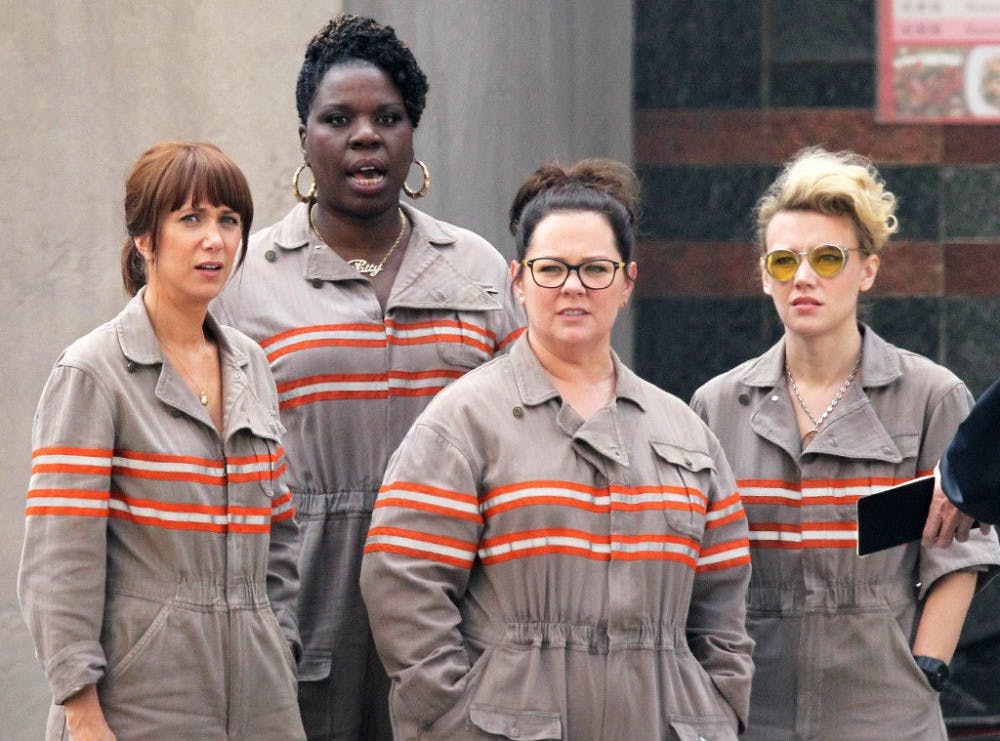Let's talk remakes and reboots: A type of endeavor once lauded as everyone's worst nightmare at the movies that has become not–so–terrible. It turns out that if fan–girling screenwriters actually put their minds to it, remakes and reboots can turn out pretty great (that's you, 21 Jump Street, About Last Night, Evil Dead and Jurassic World).
But lately, Hollywood, facing what can only be described as complete and total shaming about their utter lack of female stories and story runners, thinks they've come up with a foolproof solution to this issue: Take great movies and shows, remake them, but this time, with ladies. Voilá, now old white male Hollywood execs are definitely producing female–centric stories, and their wives will stop criticizing them for making movies whose only female characters are "hot love interest," "female crossing guard" and the occasional "stern female boss."
Except they’re not. Taking stories like Ghostbusters and Ocean's Eleven (one whose female–centric trailer is out and the other whose lady–focused remake is in the works) and just shoving women into originally male roles is not the same as telling female stories. A female story originates from the uniquely female perspective of a female protagonist that’s necessary to guide a plot to its end.
By comparison, feminist lit clases like "Women Storytellers: Telling it All" isn’t a bunch of Pride & Prejudice & Zombies–style reboots of male–centric books retold with women as the main characters. Literature about women comprises original stories with female protagonists, and a movie is just another vehicle to tell a story.
Stories are what make people care about a culture. So then what does it mean that the stories dominating the silver screens, the ones that America so heavily exports to the rest of the world, are mostly making people care about men, and not women? It means that movies are doing a disservice to half the global population, and more specifically, to half the population of Penn undergraduates.
Take Thelma & Louise: Of course road trip movies have been made before, but these particular women are on a road trip because [spoiler alert] they're on the run. Louise shot some guy that tried to rape Thelma because Thelma batted her eyelashes at the guy and now they’re fugitives. Now that's a female road trip story: They're fighting to survive in a man's world.
A story can't become iconic if it's already been made. Sure, Star Wars: The Force Awakens was great, but Luke Skywalker will always be the true beacon of Star Wars. Why? Because the reboot was one long–ass ode to the original trilogy. Keeping the essence of the original story is what makes any remake or reboot great, and that is precisely why this idea does not work to fill the female story gap in Hollywood. The essence of a female story has got to be that it's about a woman! Women acting the way that women act because it's integral to the telling of the story and not to the retelling of a male story is what separates Road House, but with a lady bouncer, from a badass movie about a female bouncer in the boonies who stops a corrupt undercover sex trade at the club she's been hired to bounce.
So, Hollywood, give audiences (specifically audiences at Cinemark, holla!) something to actually write home about: an ugly girl getting the hot guy, female scientists doing some shit I can't even think up, women having midlife crises for their own reasons, teenage girls stressing over losing their virginities because they heard aged hymens cause cancer, but just do not try to sell anyone on Shawshank Redemption, but this time it's lady prisoners. Because that sucks, and you know that sucks, and Hollywood knows that sucks.

